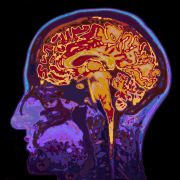
Intuition
Intuition is a form of knowledge that appears in consciousness without obvious deliberation. It is not magical but rather a faculty in which hunches are generated by the unconscious mind rapidly sifting through past experience and cumulative knowledge.
Often referred to as “gut feelings,” intuition tends to arise holistically and quickly, without awareness of the underlying mental processing of information. Scientists have repeatedly demonstrated how information can register on the brain without conscious awareness and positively influence decision-making and other behavior.

Psychologists believe that intuition relies on powers of pattern-matching, as the mind combs experience stored in long-term memory for similar situations and presents in-the-moment judgments based on them. The automatic information processing that underlies intuition can be seen in the everyday phenomenon known as "highway hypnosis,” which occurs when a driver travels for miles without a conscious thought about the activity of driving the car.
Intuition is often referred to as “gut feelings,” as they seem to arise fully formed from some deep part of us. In fact, they are the product of brain processing that automatically compares swiftly perceived elements of current experience with past experience and knowledge, and they are delivered to awareness with considerable emotional certainty.
Intuition, like first impressions, serves the brain’s need to predict and prepare for what will happen next. First impressions are rapid, holistic assessments of people based on subtle perceptual cues and judgment of intent to help or harm. Both rely on automatic processes and, as rapid evaluation systems, both are subject to error, especially from biases we hold.
Because human survival depends on avoiding danger, our mental apparatus is wired to be especially sensitive to signs of danger and to register them before we can recognize and act on them. That knowledge is a product of the brain’s built-in negativity bias and can feel intuitive. However, it is not always accurate, as the early warning system errs on the sides of false alarms.

Our gut feelings are often correct, but we tend to attach a certainty to them that they do not always merit. They do tend to be more accurate in some domains of experience than others, such as in the formation of first impressions. Intuition is also often valuable in detecting deception and other forms of danger, and in detecting sexual orientation.
Gut feelings do have their value in complex decision-making. Studies of top executives show that even after they analyze mounds of data, the information does not tell them what to do; that is where intuition is a guide. People typically cite rational-seeming criteria for their actions and do not disclose the subjective preferences of feelings that arise spontaneously.
Experts find that intuition, no matter how right it feels, is more reliable in some areas of activity than others. For example, it can help you generate new ideas or new figures of speech, but don’t count on it for comprehending vocabulary, where reflective thinking better fits the task, or in judging job candidates. Many situations actually utilize a combination of intentional reflective deliberation and automatic intuition.
Intuition is a thinking style, and people differ in the degree to which they rely on intentional reflection on the one hand and automatic knowledge on the other. In addition, people differ in a specific facet of intuitive ability, namely implicit learning, or the capacity for taking in complex information without being aware of having learned it. Too, some people have more experience and expertise stored in their memory database against which current perceptions can be matched.
Learning relies on memory input and retrieval, and although the mechanisms of memory operate outside conscious awareness, most often deliberate effort is needed to acquire the information to be stored in memory. In fact, intuition is not a good guide to how well you are learning something. Intuition suggests that long stretches of studying or practice are best for learning, when evidence indicates that studying in shorter chunks is more effective.
It is possible to hone your powers of intuition. To some degree, intuition stems from expertise, which relies on tacit knowledge. Strengthening intuition requires making use of feedback, comparing the real-life outcomes of situations with the intuitive decisions you made. Even so, being highly intuitive in one domain of experience doesn’t guarantee reliability in every area.














